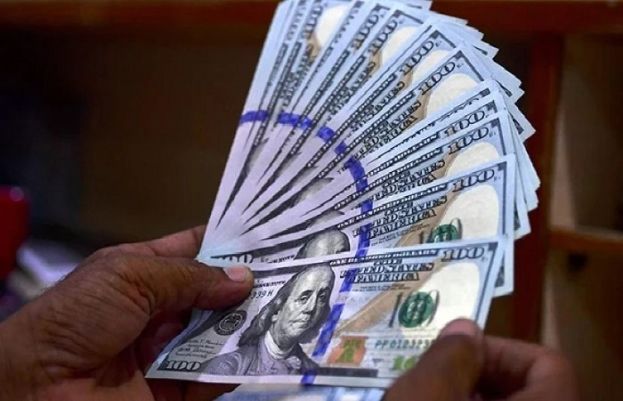
During Wednesday's intraday trade, the dollar lost Rs12.38 and was being traded at Rs226 against the rupee, down from 238.38 from Tuesday's close in the interbank.
The dollar started losing ground on Friday after the rupee — ranked among the world's worst performing currencies — plunged for 10 straight sessions during the last days of July — and depreciated around 5% just last week.
Data from the Pakistan Bureau of Statistics (PBS) has shown that imports have plunged by 38.3% over the previous month as a sizable cut in imports was witnessed after the government banned a number of luxury items to manage the shortage of dollars in the economy.
Not only did imports decrease, but exports, too, witnessed a plunge. However, pressure on the rupee eased as the trade deficit reduced by 18.3% to $2.64 billion in July, 2022 against $3.235 billion in July, 2021. In June, 2022, the gap was at $4.96 billion.
Arif Habib Limited's head of research Tahir Abbas told Geo.tv that with reducing pressure from imports along with lower demand, the currency is stabilising and expected to appreciate further.
Capital market expert Muhammad Saad Ali said external account data is encouraging and will further boost the economy.
The rupee also strengthened after the International Monetary Fund (IMF) said that Pakistan has completed the last precondition — increasing the levy on petroleum products — for the combined seventh and eighth reviews.
IMF's Resident Representative for Pakistan Esther Perez Ruiz said in a statement Tuesday that a board meeting is tentatively scheduled for late August once adequate financing assurances are confirmed.
In light of the lender's statement, Abbas noted that further inflows from friendly countries, along with the IMF tranche disbursement, expected by the end of this month will also play a role in stabilising the economy.
The Pakistani rupee has lost more than 30% of its value against the greenback this year and the country’s dollar debt has reached record lows as it stares down at a $1 billion bond payment in December.
"News flow that Pakistan is closing in on the resumption of IMF programme — such as IMF acknowledgement that Pakistan has fulfilled all prior conditions — [...] have increased optimism for greater macroeconomic stability in future," Ali said.
The nation is striving to stave off fears it will follow Sri Lanka into default this year with the government working to secure billions of dollars not only from the IMF but also from countries like China and Saudi Arabia.
Talking about the ongoing political situation, Ali said that it seems that both the government and the PTI are not pushing for early elections, which can "delay the steps" needed to ensure macroeconomic stability.
from latest-news - SUCH TV https://ift.tt/2Pu1ec0

0 Comments